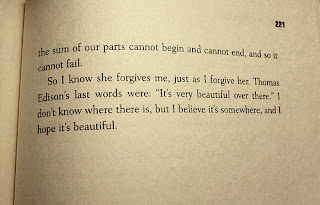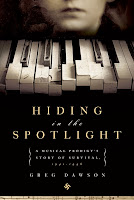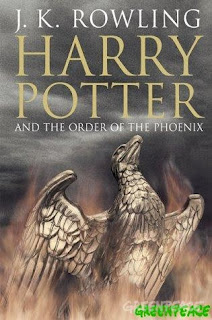"How will I ever get out of this labyrinth!"
-Last words of 'Simon Bolivar' in Gabriel Garcia Marquez's 'The General in His Labyrinth'
 I finished this one in a road trip of about 4 hours and a half and to say that those four hours have been more enlightening than anything I have ever known about religion and suffering would be an understatement. Let me tell you something about me, if given a non-fiction book about spiritualism and all that philosophical theories, I would definitely not even think about reading it but the thing is if you present it under covers, concealing it with a brilliant story and then speculate its each event, to come to a conclusion which is by all means, can lead to nothing but a logical philosophical explanation to it. I would love it. In fact anyone would love it because everyone wants to understand these things but in a way that would interest them the most, i.e with references to characters they feel familiar with rather than a jumble of intricate statements.
I finished this one in a road trip of about 4 hours and a half and to say that those four hours have been more enlightening than anything I have ever known about religion and suffering would be an understatement. Let me tell you something about me, if given a non-fiction book about spiritualism and all that philosophical theories, I would definitely not even think about reading it but the thing is if you present it under covers, concealing it with a brilliant story and then speculate its each event, to come to a conclusion which is by all means, can lead to nothing but a logical philosophical explanation to it. I would love it. In fact anyone would love it because everyone wants to understand these things but in a way that would interest them the most, i.e with references to characters they feel familiar with rather than a jumble of intricate statements."So I walked back to my room and collapsed on the bottom bunk, thinking that if people were rain, I was drizzle and she was a hurricane."
"I am going to take this bucket of water and pour it on the flames of hell, and then I am going to use this torch to burn down the gates of paradise so that people will not love God for want of heaven or fear of hell, but because He is God.
 'Looking For Alaska' is after a character named 'Alaska' (yes after the largest state in U.S). Although the story is narrated by 'Miles Halter' aka 'Pudge' ,the main protagonist who has an interesting but slightly morbid habit of memorizing the last words of famous historians. The story starts with Miles telling his parents the reason he wants to go to 'Culver Creek' a private school is to seek the great which he explains to them by showing them the Biography of 'Francois Rabelais',a poet whose last words were 'I go to seek a Great Perhaps.' And then he is off to Culver Creek where he meets his room-mate 'Chip Martin' aka 'colonel' and 'Alaska'.
'Looking For Alaska' is after a character named 'Alaska' (yes after the largest state in U.S). Although the story is narrated by 'Miles Halter' aka 'Pudge' ,the main protagonist who has an interesting but slightly morbid habit of memorizing the last words of famous historians. The story starts with Miles telling his parents the reason he wants to go to 'Culver Creek' a private school is to seek the great which he explains to them by showing them the Biography of 'Francois Rabelais',a poet whose last words were 'I go to seek a Great Perhaps.' And then he is off to Culver Creek where he meets his room-mate 'Chip Martin' aka 'colonel' and 'Alaska'. "I wanted to be one of those people who have streaks to maintain, who scorch the ground with their intensity. But for now, at least I knew such people, and they needed me, just like comets need tails."
 And then and there starts a distorted and variant image of the 'great perhaps' he had in his mind, following routine classes with regular smoking and booze, sneaking out after curfew and then at times getting busted for the same. Pudge who is in fact a 16 year old skinny, nerdy guy, he is friendless, lonely, and his greatest quirk is to read biographies in search of last words. He meets 'Alaska' courtesy to his friendship with Colonel. She is wild, funny, intelligent, moody, spontaneous, drop-dead gorgeous ,a mystery and an unattainable girl with whom Pudge instantly falls in love with. Alaska also has a reputation for smart and stylized never failing pranks. And besides everything the thing that I like most about Alaska is that like most pained and troubled people she is dead-pan sarcastic. Her pain is evident in her statements like- "Y'all smoke to enjoy it. I smoke to die."'
And then and there starts a distorted and variant image of the 'great perhaps' he had in his mind, following routine classes with regular smoking and booze, sneaking out after curfew and then at times getting busted for the same. Pudge who is in fact a 16 year old skinny, nerdy guy, he is friendless, lonely, and his greatest quirk is to read biographies in search of last words. He meets 'Alaska' courtesy to his friendship with Colonel. She is wild, funny, intelligent, moody, spontaneous, drop-dead gorgeous ,a mystery and an unattainable girl with whom Pudge instantly falls in love with. Alaska also has a reputation for smart and stylized never failing pranks. And besides everything the thing that I like most about Alaska is that like most pained and troubled people she is dead-pan sarcastic. Her pain is evident in her statements like- "Y'all smoke to enjoy it. I smoke to die."' Though she is definitely not an angel of virtues and the author or narrator never even portrays her as one. She is definitely a character one comes to think the most about in the end.
Another of my favorite characters in the book is Chip 'colonel' martin, who reminds me a bit of 'Fred & George ' i.e the weasely twins in the Harry Potter series. He is smart and also sarcastic to the core and values the things that value most in life - his integrity which is the reason behind why he never rats and his friends. His tales of getting evicted out of the gym due to the nuisance he creates are hilarious.
"I mean, it's stupid to miss someone you didn't even get along with. But, I don't know, it was nice,you know, having someone you could always fight with." - Colonel
But the story is not about Colonel or Alaska neither is she the main character, definitely a very important and unforgettable one but not the main, the story is about derivations of meaning of life, suffering, guilt, friendship and other values higher than life itself. The centre of the story is around a discussion about the 'labyrinth' from the last words of Simon Bolivar.
 Alaska: "'He'—that's Simon Bolivar—*was shaken by the overwhelming revelation that the headlong race between his misfortunes and his dreams was at that moment reaching the finish line. The rest was darkness. "Damn it," he
Alaska: "'He'—that's Simon Bolivar—*was shaken by the overwhelming revelation that the headlong race between his misfortunes and his dreams was at that moment reaching the finish line. The rest was darkness. "Damn it," hesighed. "How will I ever get out of this labyrinth!'" (those were his last words)
Miles: "So what's the labyrinth?"
Alaska: "That's the mystery, isn't it? Is the labyrinth living or dying? Which is he trying to escape—the world or the end of it?"
The second half of the book takes this discussion to yet another level where to finally as Alaska concludes the labyrinth symbolizes 'suffering' and the ways of getting out of it varies according to the person.
"The only way out of the labyrinth of suffering is to forgive."
book where it becomes from mundane to momentous. The demise of Alaska comes as a shock to Miles and Colonel and they both blame themselves for letting her go and drive that drunk that night but the later turn of events makes them susceptible to the possibility that Alaska might have committed suicide. Owing to her memory they try to investigate whether her death was an unavoidable fate or willful self-destruction.
"I may die young, but at least I'll die smart."
 There are many layers to Alaska's character and one finds very little time to explore it which adds to the mystery that already Alaska is. Like Miles (pudge) himself admits of having so little time to know Alaska and not being so sure of whether he even knew her well.
There are many layers to Alaska's character and one finds very little time to explore it which adds to the mystery that already Alaska is. Like Miles (pudge) himself admits of having so little time to know Alaska and not being so sure of whether he even knew her well.
Things that did not go right, things that seemed okay at the time because we could not see the future. If only we could see the endless string of Consequences that result from our smallest actions. But we can't know better until knowing better is useless.
 Through out the second half the narrator makes various speculations on life and discovers the truth of life on different aspects. He even admits to the fact that even though he was in love with Alaska, he will forget her, her memory will fade like everything falls apart, which was definitely very blunt and brave. The final paper that he presents where he answers to the question of " how will one get out the labyrinth of suffering" is definitely something that I will never forget because it presents us a picture of the whole reality and circle of life in a few pages.
Through out the second half the narrator makes various speculations on life and discovers the truth of life on different aspects. He even admits to the fact that even though he was in love with Alaska, he will forget her, her memory will fade like everything falls apart, which was definitely very blunt and brave. The final paper that he presents where he answers to the question of " how will one get out the labyrinth of suffering" is definitely something that I will never forget because it presents us a picture of the whole reality and circle of life in a few pages. Overall I found the book definitely climbing its way to my favorites and I still can't believe that this is John Green's First novel!! I am definitely looking forward to more of his work now. 'Looking for Alaska' is a mirror to the various aspects of human life and the philosophy behind it entwined with a story that is lively and yet ironically painful and still full of hopes. In my opinion, it's this combination and the characters that make this book a masterpiece!!
Overall I found the book definitely climbing its way to my favorites and I still can't believe that this is John Green's First novel!! I am definitely looking forward to more of his work now. 'Looking for Alaska' is a mirror to the various aspects of human life and the philosophy behind it entwined with a story that is lively and yet ironically painful and still full of hopes. In my opinion, it's this combination and the characters that make this book a masterpiece!!"When adults say, "Teenagers think they are invincible" with that sly, stupid smile on their faces, they don't know how right they are. We need never be hopeless, because we can never be irreparably broken. We think that we are invincible because we are. We cannot be born, and we cannot die. Like all energy, we can only change shapes and sizes and manifestations. They forget that when they get old. They get scared of losing and failing. But that part of us greater than the sum of our parts cannot begin and cannot end, and so it cannot fail."
— John Green (Looking for Alaska)




























